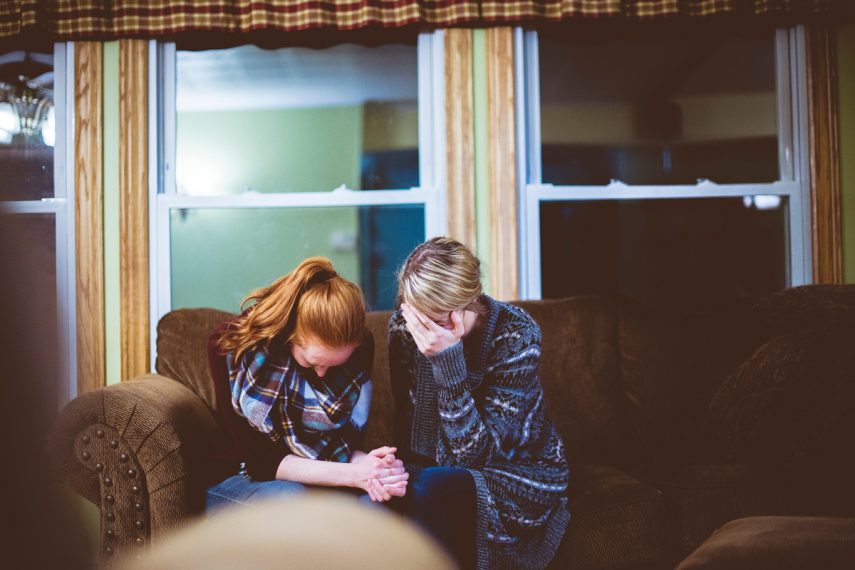Coping with Loss

One of the hardest aspects of experiencing loss as an adult is the aftermath once the initial shock has dissipated.
Loss is an aspect of life every person will eventually experience. In almost every article or text one reads there is some statement made to normalize death as a natural progression of life. Whether death is drawn out and expected over the course of weeks, months, or years or if it is sudden, it guaranteed to garner a reaction delayed or immediate. In my own life I have suffered and witnessed others suffer various forms of loss all with differing reactions. In my own experience with clients as well as myself, one of the hardest aspects of experiencing loss as an adult is the aftermath once the initial shock has dissipated.
As children there is a general sense of security when loss is experienced as there are usually parents available to comfort and soothe when emotions might be too difficult to handle. However, as an adult it might be harder to reach out to one’s identified security blanket or sense of comfort with loss of someone close or who had an impact. There are typically more expectations placed on adult during times of grief (especially if it is a close relative who has passed) including planning, rummaging through the belongings of the deceased, and the emotional pain in gradually tying up the loose ends that eventually phase out the existence of the deceased on paper. Each step in putting someone to their final resting place can be extremely painful and emotionally taxing with one wishing for the worst to be over and be able to “get back to normal.”
Being focused on establishing normalcy after loss is a recipe for potential disaster in one’s emotional well-being
However, in my experience there is a danger with hoping for life to “get back to normal” with the danger being reducing the space for one to grieve. There is plenty of emphasis placed on “grieving” at the funeral, days leading to the funeral, or days after. Additionally, there is even an arbitrary timeline available in the DSM-5 that quantifies the “grieving process” and should the person exceed the given timeline then the grief shifts to a depressive episode. Granted there is the possibility for grief contributing to a major depressive, but it seems odd to place a timeline on one’s grief. In any case, being so focused on establishing normalcy after loss is a recipe for potential disaster in one’s emotional well-being. If one does not give themselves enough space for their own emotions and only places his/herself as a caretaker for others there is a greater chance of sacrificing his/her’s own emotional grief to soothe the grief of others. Sacrificing emotions often leads them to be unresolved and eventually stuffed away on a figurative emotional shelf steadily growing in weight with continued neglect. Unresolved emotions can lead to various problems in one’s life such as depressive or anxious episodes, anger, lowered distress tolerance, and possible strain on relationships.
In my experience with clients as well as myself it becomes easier and easier to avoid dealing with emotions out fear they may too difficult to manage or just not want to take the time to experience the emotion in full. However, this blog is not meant to be all about how difficult emotions can be. There are helpful coping skills that may seem “common sense,” but sometimes people may take for granted (rather than advantage) of what is perceived to be general knowledge. Some of the coping skills I have witnessed to be useful for clients include actively naming the emotions he/she is experiencing and asking one’s self or those close for space to experience their own sadness, anger, or whatever other emotion may be present, self-care, and gestures of remembrance. Those who are often in care-taking roles will may feel guilty in asking for space to grieve as they are often consumed with soothing others. However, clients who actively state the emotions they are feeling and ask for room to grieve have reported feeling relief and more “put together” after having space to experience whatever emotions present. Further, consistent self-care can be quite relieving in my own experience with loss (as well as what clients have reported). Self-care can look like many different things such as reaching out to close friend, taking a walk, scheduling time out of the day to clear the mind of work or obligations, meditating, and exercise just to name a few. It is important to keep a routine of self-care as a means to clear some the daily burden life will often place on a person throughout the day. Gestures of remembrance may include constructing a memory box filled with trinkets or heirlooms, writing a letter to the deceased, lighting a candle, or eating a favorite food. The point of remembrance is to find something that promotes positive memory to help soothe the void that is present with the absence of someone close or important. Someone very wise reminded me that coping with grief does not have be a burden that needs to be drilled through like concrete, but it could be something that is gradual and safe that carries that leads to the same outcome; repair and closure. My hope is this little discussion of loss can be helpful to people and just give a perspective that grief cannot necessarily be quantified, but should also not be ignored. It is important to go at a gradual pace and experience the emotions that come with loss while making conscious efforts to care for one’s self in the process.
Moises Estrada, MA
Therapist, BrightQuest Therapeutic Community



